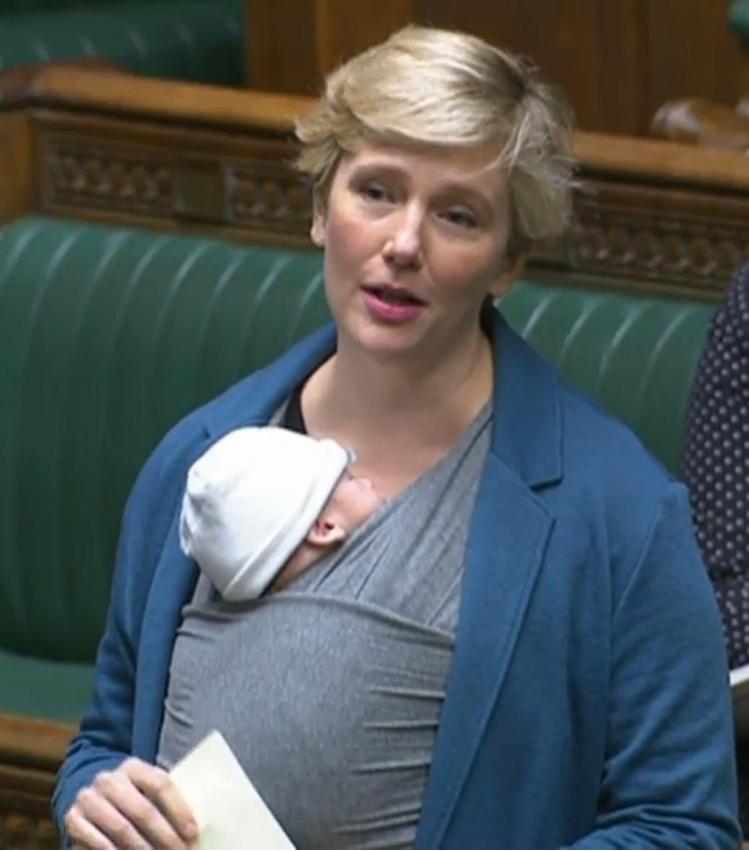Is Parliament's nursery ready for an inundation of post-election applications?
5 min read
Parliament’s nursery is over-subscribed – and the problem is only likely to get worse after the general election. Morgan Jones speaks to MPs, the House authorities and candidates already eyeing their place
“On the night of the general election, dozens of PPCs [prospective parliamentary candidates] in their 30s are going to be elected. They’re going to give their victory speeches, climb down from the stage, and one of the very first things they’re going to do as MPs is hit send on a pre-prepared application for the parliamentary creche,” one thirtysomething Labour candidate tells The House.
The Labour Party is eyeing a landslide, and a significant proportion of candidates hoping to turf out Tories – 48 per cent of them women – have young children, or envisage having them in the near future. In short, they’re more likely to want the services of the parliamentary creche than the people they are predicted to replace.
There’s a problem, however: even before a likely influx of younger MPs, the service is already over-subscribed. In the sweep of parliamentary history, the estate’s nursery is a new innovation. Its opening was announced in 2009, shortly after John Bercow (then father to young children) became speaker, to “provide a more family-friendly offer to MPs and their families”, as a Commons spokesperson says. The facility is open to MPs, peers and their staff, plus lobby journalists and a variety of other workers on the estate.
An updated tiering system... will ensure MPs are prioritised for on-site nursery facilities
Not all parents are equal in the eyes of the authorities, however, as the stressed PPC in their 30s – along with a number of current MPs who are unhappy at not being able to secure places – will be pleased to hear. To tackle over-subscription, a spokesperson says, “the House has recently implemented an updated tiering system, which will ensure MPs are prioritised for on-site nursery facilities”.
Speaking to parents who work on the parliamentary estate, all consider the nursery good, and good value for money. Both are true: it’s rated “outstanding” by Ofsted, and full-time care for under-twos is £1,406.16 a month, or £1,287 for over-twos. (The average for inner-London is just over £1,700.) It’s a service for people working on the estate, not a profit-making venture – interestingly, though, at its opening it was reported that the service would eventually wash its face financially.
The nursery’s non-profit-making status has been the subject of criticism in the past, however. In 2013, then-MP Roger Godsiff called for the “subsidised and lavish facility” to be shut down unless it could turn a profit. One suspects a degree of motivated reasoning from the former Labour MP: the main nursery facility, located in 1 Parliament Street, was previously Bellamy’s bar, which Godsiff campaigned to save.
The nursery replacing a bar is a sign of Parliament’s changing culture and priorities. Historian Sarah Crook has commended its “pleasing symbolism”. If, in sweeping terms, it’s team bar vs team nursery, it is easy enough to place the current Speaker, guaranteed to be a key player in any provision changes in the next parliament.
 Stella Creasy (Credit: Alamy)
Stella Creasy (Credit: Alamy)
Sir Lindsay Hoyle has consistently shown himself open to modernising Parliament; in 2021, after Labour MP Stella Creasy was told she couldn’t bring her baby into a debate, he recommended a review, arguing that “rules have to be seen in context and they change with the times” (the review ultimately found against rule changes).
Along with campaigning MPs like Creasy, childcare and meaningfully accessible workplaces are subjects of interest for a wide variety of Labour groups, all of which will become more influential should the party triumph at the polls. The House understands that Labour will ask its candidates what their childcare needs will be if they’re elected. The Women’s Parliamentary Labour Party, Labour Women’s Network and the Labour Women’s Parliamentary Staff Network are all likely to keep a watchful eye on progress – with the flexibility of nursery provision being one key concern.
“It’s so important that parents aren’t driven away from working in Parliament or pursuing careers in politics because of a lack of access to suitable childcare,” says a spokesperson from the Labour Campaign for Childcare, one such organisation likely to be paying close attention.
“We hope that a Labour government will commit to ensuring the parliamentary nursery is able to provide the level of support that all the workers on the parliamentary estate need.”
Among those leading the charge against Godsiff’s anti-nursery campaign a decade ago was Labour’s Lucy Powell. Her daughter was in the first cohort to use the nursery, and the Manchester Central MP is now leading a newly re-established user group – a sub-committee of the administration committee, featuring both Labour and Tory MPs, along with other staff users and representatives – for the nursery.
Powell acknowledges that there have “been a few issues in the last year or so with place allocation”, but tells The House she is “very confident we can quickly resolve all of these”. The nursery will be able to continue with its “core function” in the next parliament, she says: supporting working parents on the parliamentary estate.
